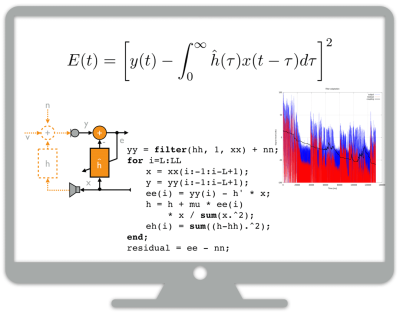Mathematical modelling
Mathematical models enable to understand and predict how do complex systems behave. Simulation and model-based design reduces development cost and time to market. DTP is experienced in bridging maths and science with software and hardware engineering.
DTP offers mathematical modelling services based on expertise in areas including:
- Multivariate statistics
- Optimization
- Machine learning
- Numerical methods
- Control and fault diagnosis
- Signal, audio and video processing
- Discrete mathematics
Mathematical modelling may sound virtual, nonetheless it is strongly connected to the real world systems and is focused on solving real world problems.
The process consists of:
- System analysis:
- Analysing real world objects such as hardware circuitry, computer networks, people behaviour in social services, car engines, power distribution networks, sound phenomena, etc.
- An objective of the analysis is to discover principal properties and relationships of the systems and objects.
- Modelling systems in the virtual world:
- Expressing systems in the language of maths.
- Creating computational models.
- We use MATLAB and GNU Octave as tools of choice.
- Performing simulations:
- Running the virtual simulation.
- Capturing conclusions to be applied in the real world later on.
- Verification:
- Checking whether the results and conclusions are satisfactory.
- If not – redoing the whole process.
Models allow to simulate and visualise objects in various conditions to predict their behaviour. Visualisations make possible to understand and assess how systems work. Model based design enables to iterate over again the following stages: analyse, model, simulate and verify. All that in a short time and at a low cost. Once a model behaviour is satisfactory a development of an actual software or hardware may start. With this approach the expensive and prolonged corrections are minimized.
DTP offers end-to-end services starting from system analysis, through modelling, simulation, verification and system parameters identification, up to development, testing and integration of hardware and software solutions in the model-based design approach. We have unique commercial experience in creating synergies between applied mathematics and science knowledge, and hardware and software engineering expertise, based on in-house competences as well as cooperation with researchers from academic centres in Europe.

